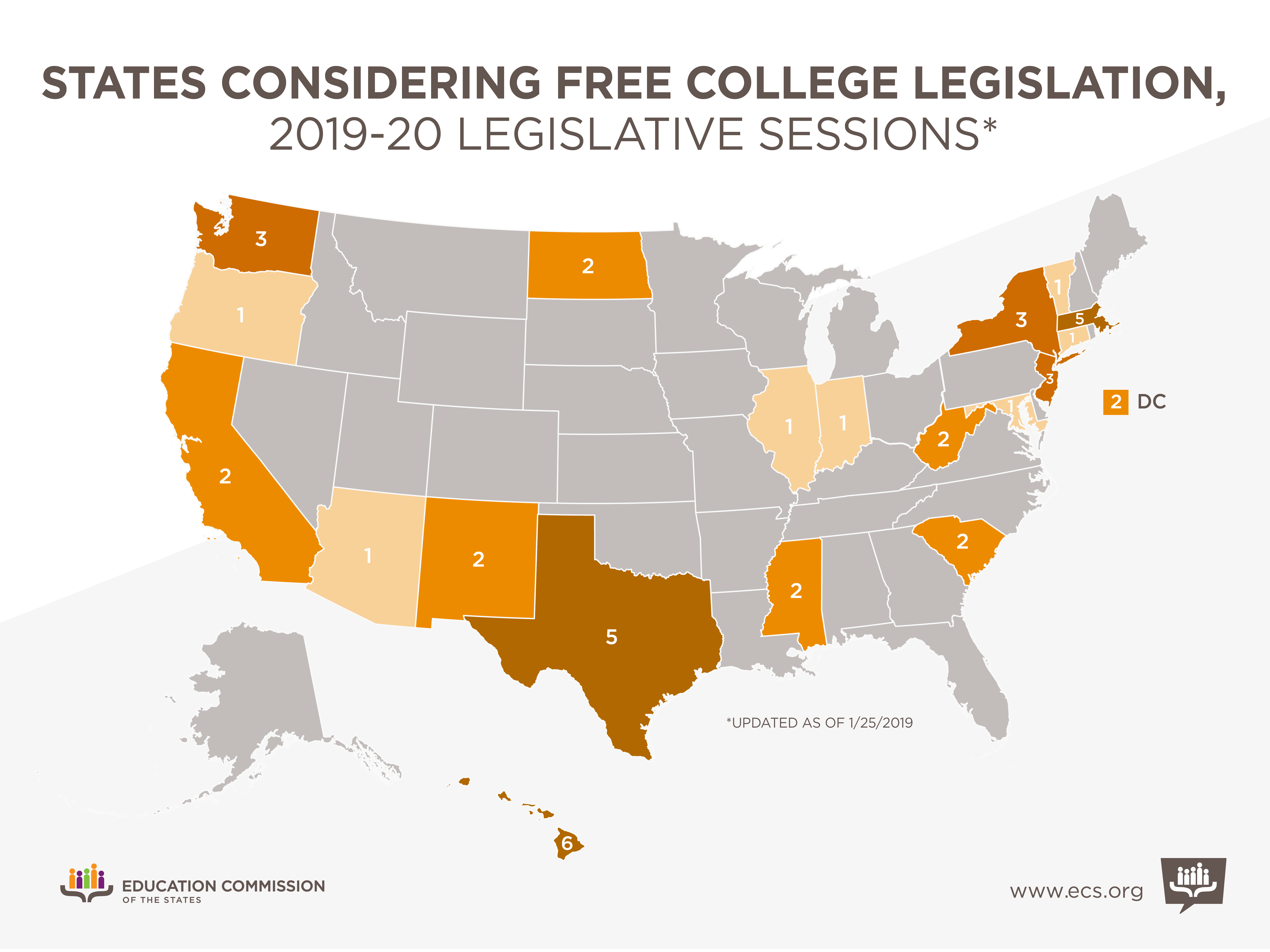State legislatures are officially in full swing, with 44 states plus the District of Columbia in session. At Education Commission of the States, we’re cleaning our glasses and diving into the thousands of pieces of education-related legislation spilling into our inboxes. Not surprisingly, free college maintains its position on state legislators’ minds. We are already tracking 45 pieces of legislation in 19 states plus the District of Columbia.

Massachusetts S.D. 1415 takes perhaps the broadest approach this year, stating simply that, “…the policy of the commonwealth [is] to guarantee free public higher education as a right for all residents.” However, most of these new proposals track closely with the historical trajectory of the movement. Proposals focused on eliminating tuition and fees for students matriculating directly from high school are currently in play in the District of Columbia (B. 23-0050), Mississippi (H.B. 72), South Carolina (H. 3214, S. 25) and Texas (H.B. 630, S.B. 32, S.B. 33), among others. (You can read more from us on the importance of reaching adult students with free college policy here.)
Several proposals, however, are taking new approaches to define the student population eligible to benefit from free college policy. So far, we see states seeking to include the four-year public sector — a move which would presumably increase the price tag for a free college program. On the other end of the balance sheet, we see states limiting eligibility to specific localities or adding post-graduation residency or work requirements. Some examples:
Inclusion of Four-Year Sector
- New Jersey 1936 proposes to eliminate tuition for students who are enrolled full-time in a county college or four-year public institution, complete at least 30 credits per year and have a family income under $125,000.
- North Dakota H.B. 1273 proposes a tuition waiver for a student’s final year in a four-year program, final semester in a two-year program or the final 25 percent of a certificate program.
- Massachusetts S.D. 225 (also S.D. 226) proposes to cover the entire cost of tuition and fees for any year other than the first of an associate or bachelor’s degree program for families earning under the state median income. An alternative version, S.D. 227, proposes the same model for families earning less than 125 percent of the state median income.
- Several bills in New Jersey are designed to make the last two years of a transfer student’s journey tuition- and fee-free. A.B. 3090 and S. 1281 both propose to subsidize the final two years in a four-year institution for students who transfer from a public county college with an associate degree.
Eligibility for Specific Localities
- Washington B. 1123 establishes a promise program for students in up to five cities or counties across the state. The support is limited to students who have recently earned a high school diploma or equivalent.
- Indiana B. 520 limits eligibility to students residing in certain counties within the state. The bill also requires that students live in Indiana for at least two years after graduation or repay.
Post-Graduation Residency and/or Work Requirements
- West Virginia B. 2450 (alternative version H.B. 2449) supports students enrolled in programs that satisfy a workforce need, as defined by the department of commerce. While the program acts as a grant upfront, the student must repay if they leave the state within two years of when the grant is awarded.
While many of these proposals may not make it before committee or ever see a floor vote, they represent valuable iterations on the concept of free college and how states can assist students who face college affordability challenges. You can continue to follow each of these bills with our team in real time on our State Education Policy Watch List.










